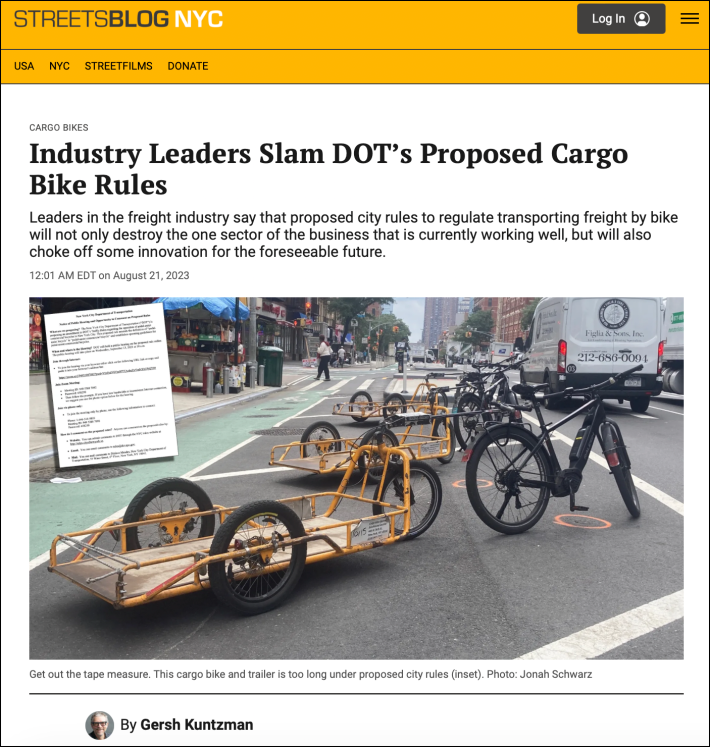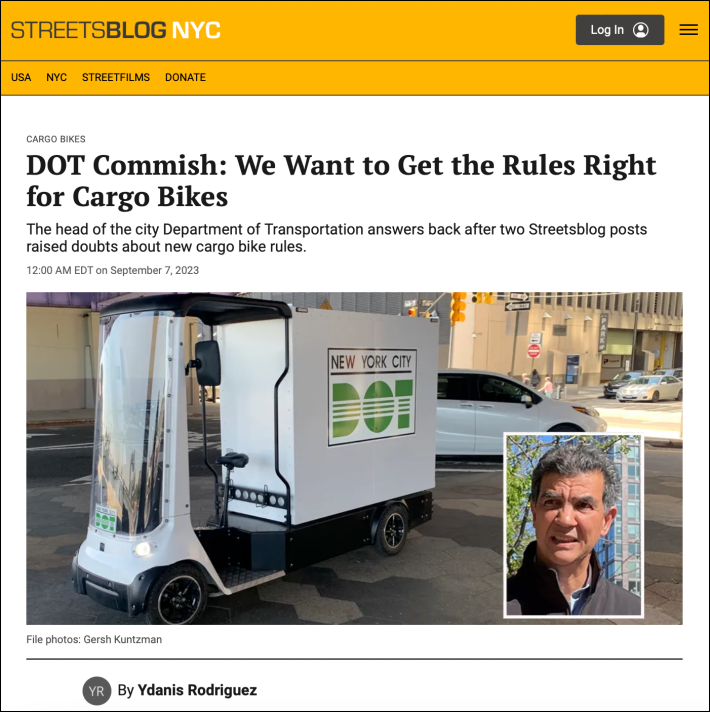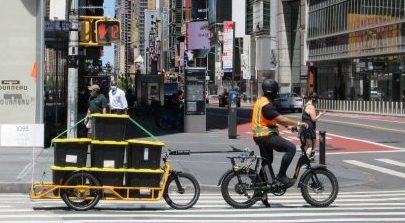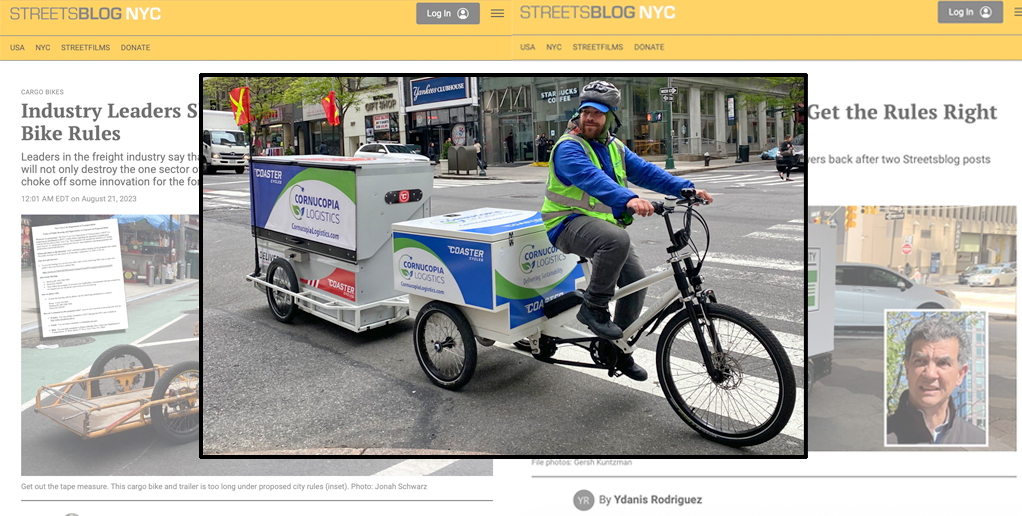Streetsblog got action.
Under fire from sustainable freight leaders, the Department of Transportation has tweaked its final cargo bike rules to allow the longer bike-trailer combinations that have become a dominant and safe player on the streets.

In addition, the new generation of heavier cargo bikes will be capped at 15 miles per hour as part of a broad-ranging set of rules whose initial version were assailed by cargo bike industry leaders in a series of Streetsblog posts.
In a statement, DOT confirmed that it "made several adjustments to draft rules proposed last year based on feedback received during the public comment period."
Overall, the final rules have the potential to unleash a true cargo-bike revolution by allowing for freight deliveries — mostly done by large, unsafe, traffic-choking trucks — to be made by pedal-assist electric-cargo bicycles up to four feet wide, with four wheels and up to 192 inches long (with trailer), up from the original 120-inch limit that would have barred the existing fleets from Whole Foods and Amazon.

DOT Commissioner Ydanis Rodriguez once promised Streetsblog readers that the agency would get the final rules right. And at least one industry leader said it had.
"They did a really good job of fixing the original version and made good on their word to do so," said Mark Chiusano, CEO of Net Zero Logistics, an industry leader in the tri-state area and Boston.
And Rodriguez's direct boss, Deputy Mayor for Operations Meera Joshi, also hailed the announcement on Wednesday.
“The pandemic fundamentally changed the way we shop; now, 80 percent of us get at least one package delivered a week,” Joshi said in a statement. “We are accommodating this change in consumer culture — and preparing for congestion pricing — by encouraging environmental package delivery, away from cars and trucks. This is the way of the future — along with leveraging our waterways, and creating delivery hubs for freight to go directly onto bikes. With these innovations, New York City will be the greenest city in the nation.”
The final rules come after Streetsblog broke the original news that the city would promulgate new cargo bike rules in an effort to spur innovation. But within hours, industry leaders began widely and loudly condemning the proposal, specifically because the proposal would cap all pedal-assist cargo bikes and trailers at just 10 feet in length, far shorter than the industry standard currently in use.
"The 120-inch cap is going to eliminate all bike-and-trailer cargo solutions that currently operate in the market today and in the future," Ben Morris of Coaster Cycles said at the time. "It will eliminate all the progress that has been made over the past few years. It would take us backward."
He added that such a short bike-trailer combo would "eliminate the primary solution that operates in New York City today."
Obviously, DOT listened, saying the longer trailer rule would "encourage the adoption of e-cargo bikes and to addresses concerns that the previously proposed rules would prohibit commonly manufactured cargo bike models."
On Wednesday, Morris said he was pleased. "DOT did a nice job balancing public and private interest," he said.

One of the key purposes of the final rules is to allow the use of four-wheeled van-like cargo bikes, which some believe are illegal under state law because of the fourth wheel. Another state law clarifying the matter is stalled, prompting DOT to act, the agency said.
The agency put out a video this morning to show how a narrow four-wheeled cargo bike does fit into existing bike lanes:
Industry leaders also said they supported the final speed limit, reducing the movement of these hundred-plus-pound four-wheelers to 15 miles per hour.
Cargo bikes are going to be an essential tool for freight movement, experts have long said. A recent Columbia University study shows that the city economy loses $243 million just from double-parked trucks. And the danger that large trucks do on the roadways has also long been documented. Truck drivers are involved in 12 percent of pedestrian fatalities and 30 percent of cyclist fatalities, the city has previously said.
It is worth noting that the DOT's new rules do violate the federal definition of a "bicycle," but the fine print on the DOT code specifically creates a new definition of "commercial bicycle."






